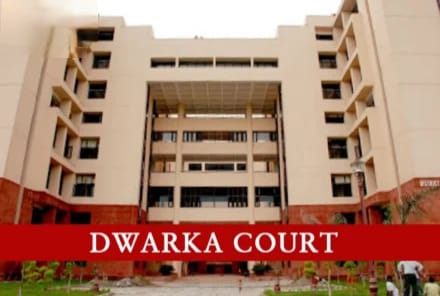Divorce Under Special Marriage Act, 1954
The Special Marriage Act, 1954, was enacted to provide a civil form of marriage for couples, regardless of their religion or faith. Unlike personal laws, this Act allows individuals from different religions, castes, or backgrounds to marry legally without converting. It serves as a significant legal framework that promotes secularism and protects the rights of interfaith and intercaste couples, allowing them to solemnize their marriage with legal recognition. When such a marriage breaks down, the process of divorce also follows the provisions under this Act. Understanding divorce under the Special Marriage Act is essential for couples seeking separation while ensuring their legal rights are protected. Divorce under the Special Marriage Act can be filed by either spouse on various grounds such as cruelty, adultery, desertion for more than two years, mental disorder, venereal disease, or if one spouse has not been heard of as alive for seven years or more. The Act also encompasses provisions for filing for divorce based on mutual consent, provided both parties have lived separately for at least one year and have mutually agreed to dissolve the marriage. This provision is particularly significant as it allows for a more amicable and less contentious resolution of marital disputes. The Act ensures equal rights to both husband and wife during the process, promoting fairness and justice in marital dissolution. The process typically starts with filing a petition in the district family court, followed by mediation, and if reconciliation fails, the court proceeds with hearings. The court may also address issues related to child custody, alimony, and property division during the proceedings, ensuring that both financial and emotional aspects are adequately addressed. The aim is to ensure a fair and just separation that minimizes trauma for both parties while safeguarding their legal rights. At Top Divorce Lawyer, our experienced legal team specializes in handling divorces under the Special Marriage Act. We provide personalized legal advice and representation to protect your rights and secure the best possible outcome. Our goal is to help you navigate the complexities of divorce proceedings with confidence and clarity. If you're considering divorce under this Act, reach out to us for a confidential consultation and let us guide you through every step of the legal process.

Why Choose TopDivorceLawyer
- Experienced Lawyers: Skilled in handling mutual divorce cases with expertise under the Hindu Marriage Act.
- Quick and Efficient Process: We ensure a hassle-free, fast divorce process to save your time and energy.
- Confidentiality Assured: Your privacy is our priority; all your personal and legal details remain secure with us.
- Affordable and Transparent Fees: Clear, affordable pricing with no hidden costs—quality legal services within your budget.
- Personalized Legal Solutions: Tailored advice and solutions suited to your specific needs for a smooth divorce experience.
- End-to-End Assistance: From petition filing to final decree, we assist you through every step with care.
Grounds for Divorce Under the Special Marriage Act
The Special Marriage Act, 1954, provides a comprehensive framework for legally dissolving marriages that were solemnized under its provisions. The Act outlines specific grounds on which either spouse can file for divorce, ensuring that both parties have equal rights and legal recourse in the event of marital disputes. One of the primary grounds for divorce under this Act is cruelty, which includes both physical and mental harm inflicted by one spouse upon the other. Acts of violence, verbal abuse, emotional manipulation, and persistent neglect can all constitute cruelty, making it a valid ground for seeking divorce. Another significant ground for divorce is adultery, where one spouse engages in sexual relations with someone other than their spouse. Adultery not only violates the sanctity of marriage but also causes severe emotional distress, providing sufficient grounds for the aggrieved spouse to seek legal separation. Desertion for a continuous period of at least two years is another valid ground for divorce under the Special Marriage Act. Desertion involves one spouse abandoning the other without reasonable cause and without the intent to return. The deserted spouse must prove that the desertion was intentional and lasted for a minimum of two years before filing the divorce petition. Additionally, the Act addresses situations involving mental disorder or unsoundness of mind. If one spouse is declared to be of unsound mind or suffers from a severe and incurable mental disorder, the other spouse may seek divorce, especially if the condition makes it impossible to continue the marital relationship. This provision protects the interests of the unaffected spouse while ensuring that the legal process is fair and just. Another critical ground for divorce is the presence of a venereal disease in a communicable form. If one spouse is diagnosed with a sexually transmitted disease that poses a risk to the health and well-being of the other spouse, the unaffected spouse can file for divorce based on this ground. Furthermore, the Special Marriage Act includes a provision for divorce if one spouse has not been heard of as alive for a period of seven years or more. This ground applies in cases where a spouse has been missing or is presumed dead, allowing the other spouse to seek legal dissolution of the marriage. Lastly, the Act also permits mutual consent divorce, a less contentious route that requires both spouses to agree to end the marriage amicably. To qualify, the couple must have lived separately for at least one year and must have mutually agreed to dissolve the marriage. This option provides a more straightforward and less emotionally taxing alternative to contested divorce proceedings. Understanding these grounds for divorce under the Special Marriage Act is crucial for spouses considering legal separation, as it helps them navigate the legal process with clarity and ensures that their rights are adequately protected.
Mutual Consent Divorce – A Less Contentious Option
Mutual consent divorce under the Special Marriage Act, 1954, provides a simpler and less contentious route for couples seeking to end their marriage amicably. Unlike contested divorces, which can be lengthy and emotionally draining, mutual consent divorce allows both spouses to come to an agreement regarding the dissolution of their marriage without prolonged legal battles and unnecessary conflicts. To be eligible, the couple must have lived separately for at least one year prior to filing the petition. This separation period demonstrates that the marriage has irretrievably broken down. Before filing the petition, both parties must reach an agreement on key aspects such as child custody, alimony, and property division. Child custody arrangements include decisions regarding the child’s living arrangements, visitation rights, and financial support. Alimony payments must be determined to ensure financial stability for the dependent party. Property division involves the distribution of marital assets, including jointly owned property and other financial holdings. Ensuring clarity on these matters minimizes disputes and promotes a fair settlement. Once the agreement is reached, the spouses jointly file a petition for divorce in the district family court, citing mutual consent as the ground for dissolution. The court then schedules a hearing, during which both spouses must appear to verify their consent and confirm the agreement. After the initial hearing, a cooling-off period of six months is provided to allow the couple time to reconsider their decision. If the parties remain firm, a second motion is filed, and the court grants the divorce decree. This process is generally faster, less stressful, and more cost-effective compared to contested divorces. Mutual consent divorce under the Special Marriage Act promotes a more amicable separation, ensuring that both spouses part ways with dignity while protecting their rights and interests effectively.
Legal Process of Filing for Divorce
The divorce process under the Special Marriage Act, 1954, follows a structured procedure designed to ensure fairness and protect the rights of both spouses. The process begins with filing a petition for divorce in the district family court where either spouse resides or where the couple last lived together. The petition must state the grounds for divorce, whether based on cruelty, adultery, desertion, mental disorder, venereal disease, or mutual consent. Proper documentation, including marriage certificates, proof of separation, and evidence supporting the claims, must be submitted. Once the petition is filed, the court issues a notice to the other spouse, notifying them of the divorce proceedings and allowing them to respond. During this period, the court may suggest mediation or counseling sessions to encourage reconciliation. The objective of mediation is to provide the couple a chance to resolve disputes amicably without proceeding to a contested divorce. If mediation is successful, the couple may decide to withdraw the petition or file for mutual consent divorce. If reconciliation fails, the case proceeds to the next stage. In the hearing stage, both spouses must appear before the court to present their claims and evidence. This may include witness testimonies, financial statements, medical reports, and other documents that substantiate the grounds for divorce. The court examines all evidence and may ask both parties for additional information to clarify their claims. This stage is crucial, as the court seeks to determine the validity of the allegations. During the hearings, the court also addresses matters such as alimony, child custody, and property division. Alimony, also known as spousal support, is determined based on factors like the financial status of both parties, duration of the marriage, and the earning capacity of the dependent spouse. Child custody arrangements are made in the best interest of the child, considering factors such as age, health, and educational needs. The court may grant joint custody, sole custody, or visitation rights. Property division under the Special Marriage Act involves the equitable distribution of marital assets, including jointly owned property, financial investments, and personal belongings. The court ensures that both parties receive a fair share of the assets while considering each spouse’s financial contributions. Once the hearings conclude, the court may provide a cooling-off period, especially in mutual consent divorce cases.

Home Page

Contact Us
Get the Legal Support You Deserve – Contact Top Divorce Lawyer
At Top Divorce Lawyer, we understand that divorce is a life-changing experience, and having the right legal representation can make all the difference. Our legal team specializes in divorce cases under the Special Marriage Act, providing personalized legal solutions to help you navigate the complexities of divorce proceedings. Whether your case involves contested divorce, mutual consent, child custody, alimony, or property division, our experts are here to offer compassionate support and professional guidance every step of the way. If you are considering divorce or already in the process, reach out to us for a confidential consultation. Our team will listen to your concerns, assess your situation, and provide you with the legal clarity you need. We are committed to offering sound legal advice tailored to your unique circumstances and ensuring that your rights are protected throughout the entire process. We offer flexible appointment schedules to accommodate your needs and can conduct consultations either in person or remotely. At Top Divorce Lawyer, we prioritize your peace of mind by handling your case with the utmost discretion and professionalism. To schedule a consultation or learn more about our services, contact us today. We are here to help you achieve the best possible outcome in your divorce case, minimizing stress and securing a fair resolution.








